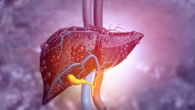
The risk of stroke: how many eggs reduce and increase it
0
Scientists remind: an unhealthy diet increases the risk of stroke by contributing to an increase in blood pressure and cholesterol levels.
A product such as chicken eggs causes a lot of controversy due to its effect on cholesterol levels, which, in turn, can determine the susceptibility to stroke.< /p>
Some studies have shown that because of the high cholesterol content in the yolks, eggs can be a potentially harmful food for people prone to cardiovascular disease. But many experts also believe that the risks associated with eating eggs are determined mainly by their quantity in the diet, as well as by how the product is prepared (for example, fried eggs are more harmful than boiled).
Authors A study published in the journal Frontiers of Health analyzed how egg consumption may affect the risk of stroke. They reviewed data presented in sixteen scientific papers, including 24 prospective cohort studies.
Scientists came to the conclusion that there is a certain relationship between egg consumption and the risk of stroke – this product can reduce or increase it, depending on the amount eaten.
“A reduced risk of stroke was observed when consuming 1 to 4 eggs per week and an increased risk – when consuming more than 6 eggs per week. The risk of suffering a stroke became particularly significant when consuming 10 eggs or more per week,” the experts reported.
A similar result was obtained in a study conducted by specialists of the Comprehensive Center for Heart Failure at the University of Würzburg (Germany). According to their data, eating more eggs was associated with a 41 percent increased risk of hemorrhagic stroke.









Leave a Reply